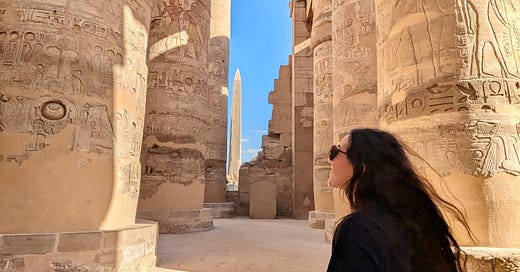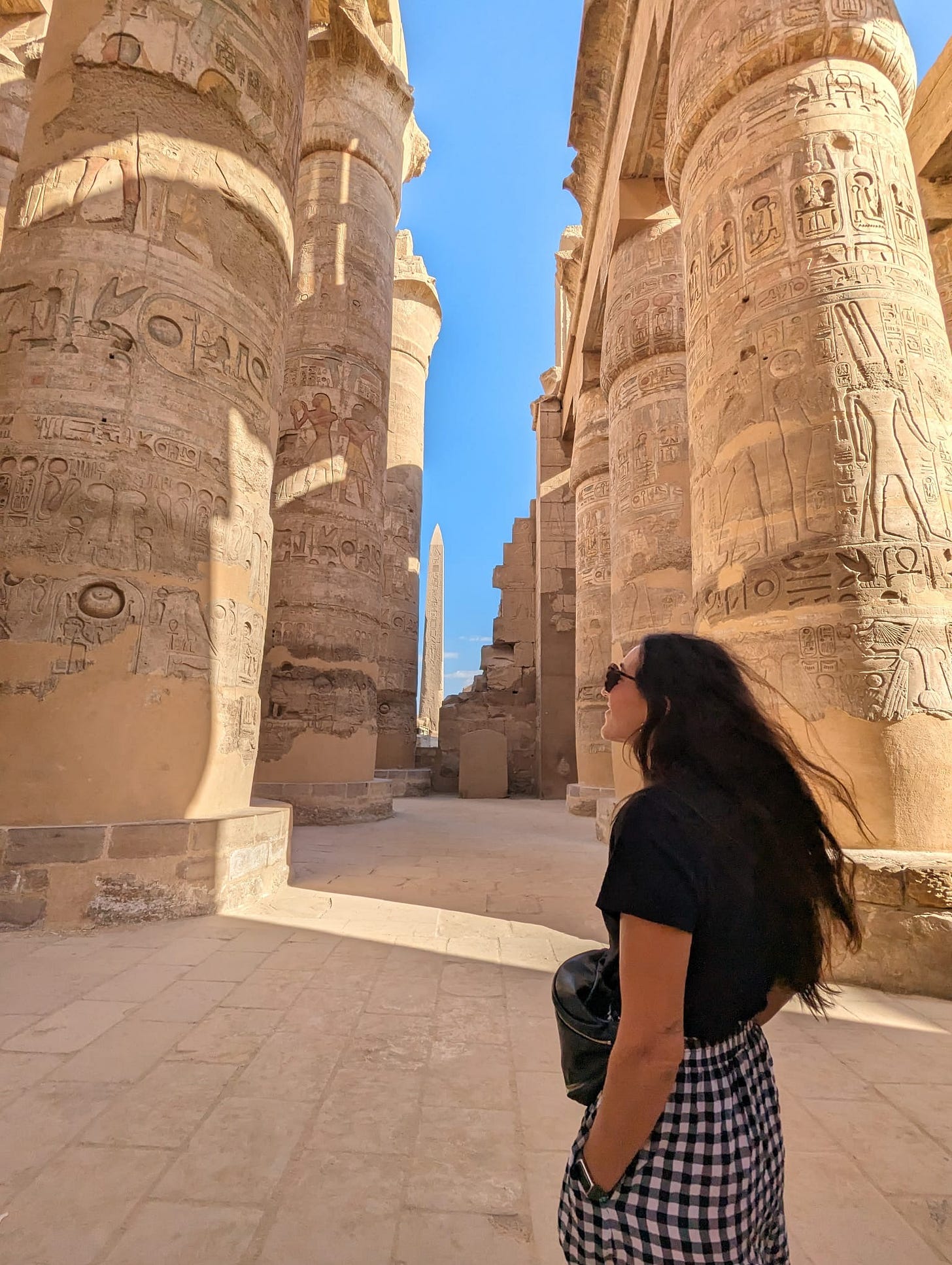Hi! My name is Malak and I am a TV Producer. I’m British-Egyptian, grew up in Manchester, and have been living in London since 2020 (yes, I chose to move city mid-pandemic).
It’s taken me a long time to figure out how to introduce myself and this newsletter. I’ve struggled because a lot of my motivation for starting this has come from a sense that, for people like me who exist as a minority within the TV & Film industry, it can be pretty difficult to know where to situate oneself. It’s an industry that thrives on labels; we define stories by genre, by channel, by tone, by who and how many people will watch. But, when you exist as a minority within a sector, that labelling can feel restrictive and reductive.
For me, being Egyptian gives me access to such a rich culture. It’s a heritage that has shaped and continues to shape who I am and the way I view the world. So of course I want to share that, particularly working in a role that is all about perspective; encouraging and being open to new perspectives, as well as enabling the perspectives of writers, directors and story-tellers.
What I struggle with is when I’m met with preconceptions about what my own identity must mean. It must mean, of course, that I am the spokesperson for all mixed race narratives. That I would be best placed to understand and consult on a story about a British-Turkish protagonist (it’s literally in a different continent) or a Malaysian immigrant (again, other side of the world).
But, whilst ignorant and reductive, at least this perspective acknowledges that - on some level - there are similarities to be drawn between the experiences of people who are navigating a situation where they are a minority.
What I struggle with more is when - in a misguided ‘I don’t see colour’ attempt - my identity isn’t acknowledged at all. There is nothing at all that separates me from my largely white, middle-class counterparts. We’ve all had the same opportunities, been perceived in the same way and come up against the same obstacles. “Finding a job in TV is about connections; you’ve just got to get out there and meet people!” Well, it’s not so simple when people can’t pronounce your name, when you introduce yourself to someone and they find it easier to ignore you than to ask. Or when the only way your email will get a response is if the company happens to be running a ‘diversity’ scheme. Being told that your project is ‘too niche’, otherwise known as ‘not white enough’, but not to worry because ‘we can make one of the characters in our other shows brown!’.
To deny these truths and experiences is to deny the very real problem with representation that our industry has. It’s an insidious symptom of an industry that gives itself a pat on the back when it hits its diversity quota for the year, but turns a blind eye to the reasons behind why we need a diversity quota in the first place. Just one look at BAFTAs winners from 2023 tells us that we have a long way to go.
I’ve been in the industry since 2016. I’ve worked across scripted and non-scripted shows, factual entertainment and children’s television. I’ve despaired at the amount of times I’ve been asked to ‘find a diverse person’ to put on screen, or brought to a meeting as a signifier for how inclusive a company is, whilst I’m expected to sit silently and smile.
But I’ve also met some incredible people on the way. People who have been generous enough to share their experiences with me, some of which mirror mine and some of which don’t. These stories inspire me; they inspire me because they give me hope. Hope that things are changing. Hope that - when given the platform - our voices can make a difference. They can influence our industry, its output, and the world we live in. They are necessary and powerful.
And that is why I’ve decided to start Broadcasting Marginalised Voices (we got there in the end). In this newsletter, I will be facilitating creative conversations with talent from under-represented groups within the British TV and Film industry, learning from the journeys of individuals working both on and off screen. I’ll be speaking to writers, actors, directors, producers and members of crew, creating a safe space where people feel able to share their experiences, exploring the intersectionality of race, sexuality, disability, gender and class. You can expect fortnightly insights into truly fascinating and inspiring journeys, as well as wider discussions about identity and culture.
Even if this only reaches a few people (kidding - I’m fully expecting to be asked to launch a podcast, publish an unrelated wellness book and get lifetime access to any skincare I want), I’m hoping that Broadcasting Marginalised Voices will offer a platform to amplify the voices of those who have traditionally been and continue to be silenced within the industry. And some conversations will even be anonymised (juicy).






Hey Malak! Thanks so much for sharing this! This resonates so much - looking forward to diving in! ☀️
Hi Malak, I’m listening to your WFTV session and so grateful you’ve set this up. I can totally resonate with some of what you say being in the industry as a British born Indian woman that has also been brought up with the richness of my heritage in the UK. Great article :)